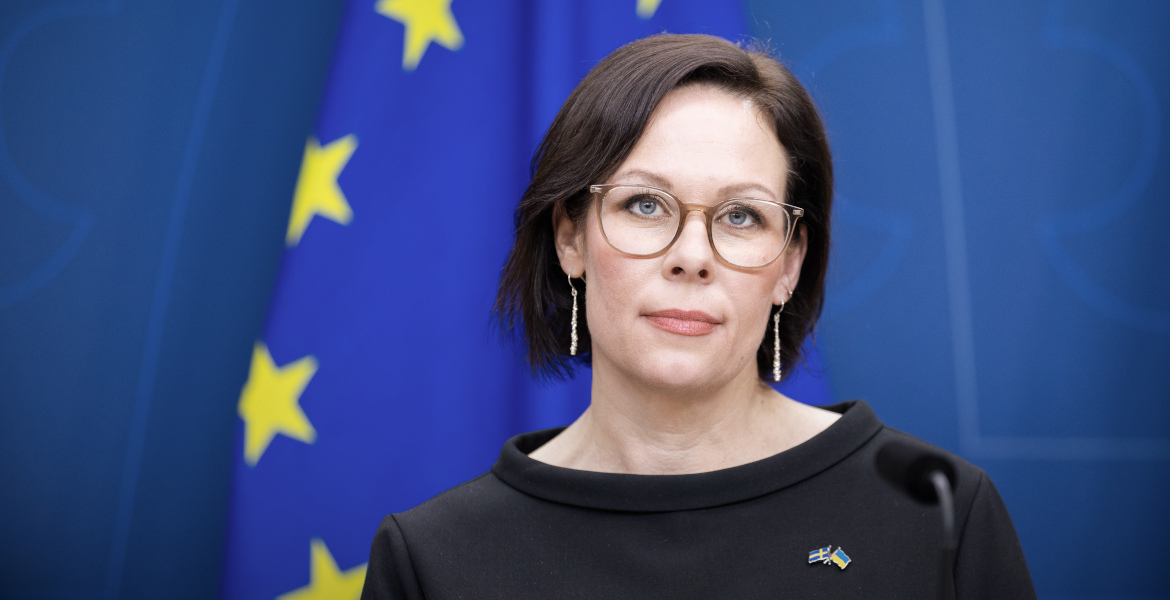The day before it was announced that Hungary would purchase four Jas 39 Gripen aircraft from Sweden – a deal worth around SEK 2 billion (€180 million) – State Secretary Diana Janse (M) bought shares in Saab, the company that manufactures the aircraft.
Although the sums involved are relatively small, experts believe that this action is deeply inappropriate and risks damaging public confidence in the government.
Hungary was the last country to approve Sweden's heavily criticized NATO application, and an agreement was also reached between the countries that included a deal on the sale of Swedish fighter jets.
Saab's shares also rose sharply when the deal became known – something that benefited State Secretary Diana Janse, who had bought shares in the arms manufacturer for just under SEK 10,000 (€900) the day before the announcement.
– She bought several shares that day and did not give any special consideration to the timing, commented Trade Minister Benjamin Dousas (M) press secretary to the tabloid Aftonbladet, which first reported the share purchase.
At the time, Janse was working for the then Minister for Foreign Affairs and Trade, Johan Forssell, and today she holds the same position, but under Benjamin Dousa. She denies that she had any prior knowledge of the deal.
– A state secretary participates in preparations within their area of responsibility. This means that not all state secretaries participate in or are informed about all preparations that come to the ministry. At the Ministry for Foreign Affairs, the cabinet secretary is responsible for issues relating to NATO, said her press secretary.
"Should keep a safe distance"
However, not everyone is impressed by the explanations, and Claes Sandgren, senior professor of law at Stockholm University and former chairman of the Swedish Anti-Corruption Institute, believes that the action is directly damaging to public trust.
– Considering that she was State Secretary with political responsibility for trade issues at the Ministry of Foreign Affairs and that the agreement was coordinated with the Ministry of Foreign Affairs, her share purchase appears clearly inappropriate.
– There is a ban on insider trading for anyone with insider information. They must keep a safe distance from anything that could be perceived as improper. According to the guidelines, such actions can damage confidence in the government, he continues.
It is often difficult to determine exactly who had insider information and who did not, especially since those accused almost always deny such allegations. However, Sandgren believes that similar allegations of corruption can easily be avoided and that neither politicians nor state secretaries should manage their own share purchases.
– Given her central position, she should, like ministers, not engage in share trading herself but place her holdings in an independent custody account with a bank.
Recurring scandals
It is worth noting that this is not the first time that high-ranking representatives of the Moderate-led government have made questionable private share purchases in companies with which the Swedish state does business. In March, the newspaper reported how Foreign Minister Maria Malmer Stenergard (M) bought shares in the Swedish defense and IT company Mildef.
This purchase took place at the same time as the Swedish government was negotiating a multi-billion order from the arms industry – where Mildef was one of the companies that benefited financially from the deal.
As in the case of Diana Janse, many supporters defended the purchase on the grounds that the amounts involved were relatively small – around SEK 10,000 (€900)– arguing that this is pocket change for a minister.
However, according to Daniel Stattin, professor of civil law at Uppsala University, the size of the purchase is of little significance in this context: "The principle is really the same: make sure you don't do business where independence or self-interest can be called into question".




